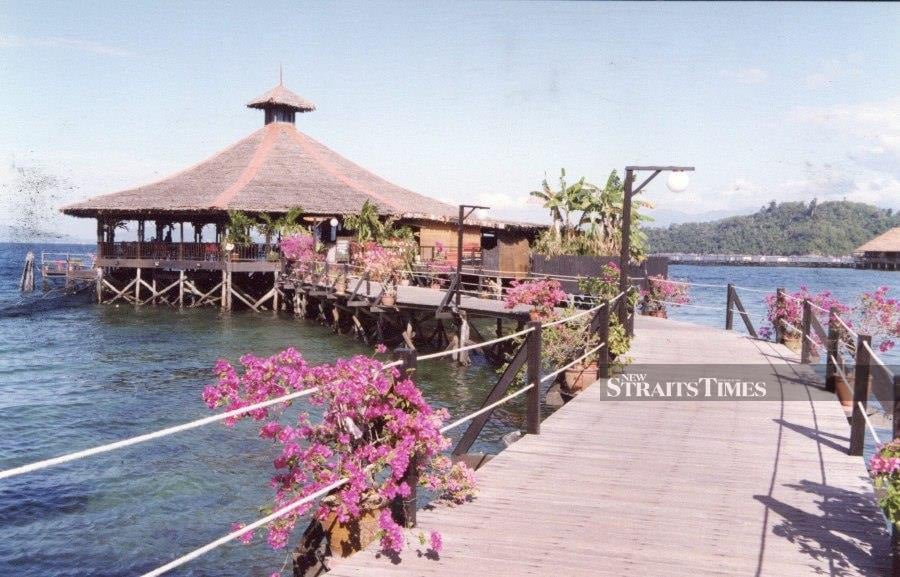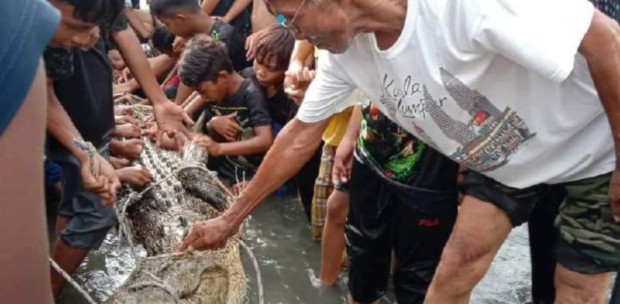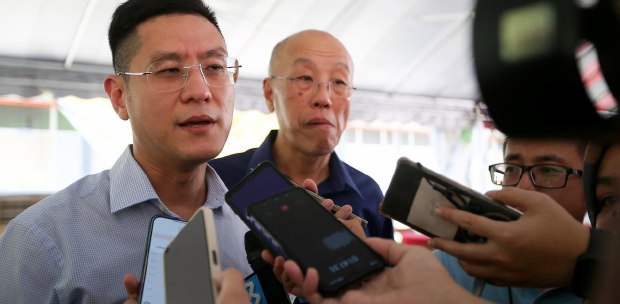KOTA KINABALU: Villagers of Gaya Island are hopeful that the Sabah government will explore alternatives for managing the settlement.
During Chief Minister Datuk Seri Hajiji Noor's visit during the ramadan month to the island, which is about a 5-minute boat ride from the city, he announced plans to relocate the villagers after low-cost houses are ready.
He said that, apart from preventing illegal structures from proliferating, the island could be developed into tourist spots similar to those in Tunku Abdul Rahman Park here.
Rajit Serong, 64, the Kampung Lobong village chief, said there were at least three generations of villagers who had been living on the island.
"About 90 per cent of the people here are citizens; we know them. Our ancestors have been living here since World War II.
"As for the relocation plan, some might agree, while others would not be used to the new environment.
"In general, a house here accommodates up to three families under the same roof. When the children get married, they will still stay with their parents," he said, adding that the new settlement might not be able to accommodate large families.
The fisherman also said that it would not be easy or cheap for the government to relocate hundreds of houses on the island.
Since the direction is towards tourism development, Rajit suggested that the authorities restructure the settlement as a fishing village as part of the tourism industry.
Sabah UiTM economist Dr Jain Yassin said Gaya Island was strategically located and had significant tourism potential.
He added that redeveloping the area could provide opportunities for infrastructure development that enhanced the tourist experience and attract investment.
"This could include retail opportunities such as shops, boutiques, and markets catering to visitors' needs and preferences.
"From an economic perspective, the relocation will bring a number of positive impacts.
"It can stimulate economic growth by attracting more tourists, creating jobs in the hospitality sector, and generating revenue through tourism-related activities such as accommodations, restaurants, tours, and souvenir shops," he said.
Through the redevelopment, the government could address waste management on the island with proper waste collection systems, recycling, and composting facilities.
The island has been criticised for waste dumping into the ocean, sparking criticism against the government.
Jain said the initial relocation plan would involve high costs, as the government would need to fund new housing, logistics, infrastructure, and other expenses.
However, he added, it could lead to long-term savings and benefits by expanding the tourism sector, improving infrastructure efficiency, fostering economic development, enhancing the waste management system, and promoting a cleaner island.
Meanwhile, State Deputy Chief Minister Datuk Seri Dr Joachim Gunsalam, who is also the Local Government and Housing Minister, said the government was committed to reducing squatter colonies statewide by 2025.
Currently, there are 285 colonies in Sabah, comprising 33,566 houses and housing 130,397 people.





